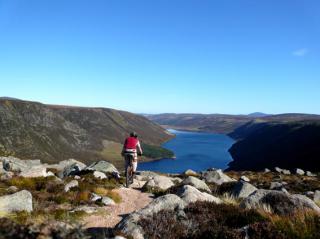Latest Briefing in Sustainability and Communities

Future Land Use Change - Working locally, thinking globally
This research briefing summarises the main findings from research done in two Local Focus Areas (Ballater and Huntly) as part of the Aberdeenshire Land Use Strategy Pilot. These findings have been used by Aberdeenshire Council to provide their overall lessons learnt regarding the pilot to Scottish Government. In turn, the Scottish Government has used the results from the Aberdeenshire and Borders Pilots to help develop the Land Use Strategy 2016-2021. In addition to the named authors, Carol Kyle, Rachel Creaney, Andrea Baggio, Laura Poggio and Marie Castellazzi are also co-authors of this briefing.
Read morePublished on 25 February 2016 in Sustainability and Communities , Ecosystems and biodiversity
Recent Briefings in Sustainability and Communities
Liver Fluke in Sheep and Cattle - A Major Animal Health Concern Following One of the Wettest UK Summers on Record
The summer of 2012 has been one of the wettest summers on record and it is held responsible for the extraordinary levels of disease and death in sheep due to liver fluke. Read more
Published on 24 January 2013 in Sustainability and Communities , Climate, water and energy , Food, health and wellbeing
Ovine chlamydiosis - the most common infectious cause of prenatal lamb death in the UK
Ovine Enzootic Abortion (OEA) is one of the major infectious causes of abortion in sheep and goats worldwide, and the most common cause in the UK. Read more
Published on 22 October 2012 in Sustainability and Communities , Food, health and wellbeing
Parachlamydia - an emerging potential cause of abortion in cattle in the UK
Reproductive failure in cattle is a major concern to livestock producers worldwide. An emerging group of bacteria known as Chlamydia-like organisms have been associated with cases of bovine abortion, as well as with human respiratory and reproductive infections. Read more
Published on 9 October 2012 in Sustainability and Communities , Food, health and wellbeing
Sustainability-oriented innovation for competitive advantage: Does the business environment matter?
Sustainability-oriented innovation within firms, such as the development of eco-friendly production methods, is seen as a route for product differentiation, value creation and as a way for firms to enhance their bargaining power within the supply chain. Read more
Published on 11 September 2012 in Sustainability and Communities , Ecosystems and biodiversity
Long-Term Land Use Change on the Machair and its Impact on Biodiversity
Machair is a distinctive type of coastal grassland restricted to about 25,000 ha in world-wide extent; 17,500 ha of this resource are in Scotland. Read more
Published on 3 May 2012 in Sustainability and Communities , Ecosystems and biodiversity
Bracken and the Asulam ban
Bracken is well known as an agricultural, ecological and health problem with little in the way of redeeming features. Read more
Published on 2 May 2012 in Sustainability and Communities , Ecosystems and biodiversity
KE of science - changing behaviours that challenge society
Society today faces a number of challenges, such as climate change, that require individuals to collectively change their behaviour in ways that incur additional costs (financial and/or non-financial). Read more
Published on 25 April 2012 in Sustainability and Communities
Sustainable Intensification within Scotland
This brief outlines the results of a recently published discussion document on applying the concept of Sustainable Intensification to Scotland. Read more
Published on 20 March 2012 in Sustainability and Communities
Marine litter issues, impacts and action-contributing to a marine litter strategy for Scotland
Increasingly, policy makers and the public are experiencing the problem of litter in our seas and on our beaches. Read more
Published on 2 February 2012 in Sustainability and Communities , Climate, water and energy , Ecosystems and biodiversity
Putting 'Good Practice' in Context - Lessons for Catchment Management
In recent years, collaborative and cross-sectoral approaches have been recommended as the most effective and equitable way to achieve better water quality in catchments. Read more
Published on 6 December 2011 in Sustainability and Communities , Climate, water and energy , Ecosystems and biodiversity







